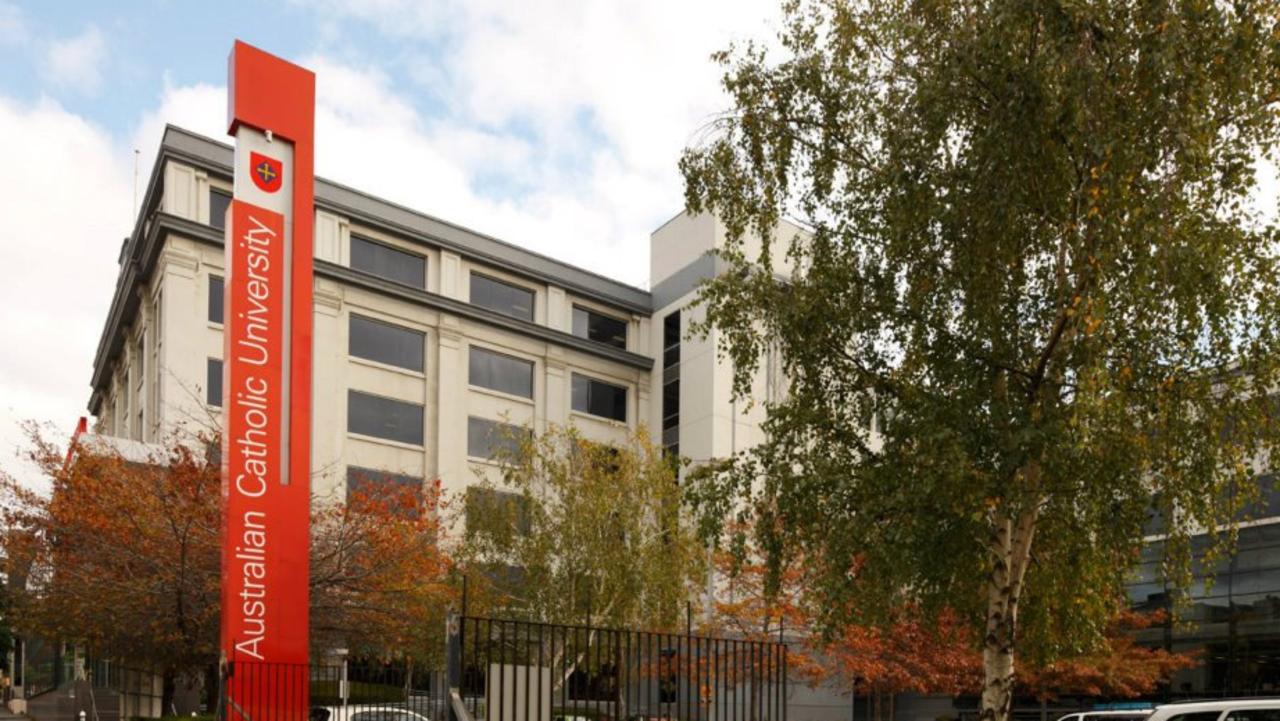ACU drops ‘Jewish’ from centre’s name; scamming Premier League soccer club sponsor wound up in court

Top officials at the Australian Catholic University will convene this week for their monthly leadership meeting, and high on the agenda will be a project dubbed the Millie Phillips Centre for Jewish Thought and History, to be funded in honour of the late entrepreneur and Holocaust refugee.
Except, the university doesn’t want the word “Jewish” in the centre’s name, apparently. Fearing a donor backlash, worried about political sensitivities and other repercussions, it’s moving to excise the “Jewish Thought and History” bit, according to confidential briefing documents given to ACU’s senate governing committee ahead of its meeting on Wednesday.
Instead, ACU is hoping to brush up this project with the anodyne title of the ACU Millie Phillips Centre, a proposal to be presented by vice-chancellor Zlatko Skrbis and which addresses not only “reputational risks” facing the university but a “potential backlash due to the complex political sensitivities surrounding anti-Semitism”.
But that’s a very odd choice of words, isn’t it? “Complex political sensitivities.” Hmm. Like, some forms of anti-Semitism are really quite nuanced. Like some might require parsing before judgment. Or should be viewed through a lens of empathy. Or, to borrow from the execrable UN Secretary General Antonio Guterres, that these things don’t always “happen in a vacuum”.
Clearly, ACU has spent much time worrying about whether its support for this Jewish-funded, Jewish-led and very Jewish project could actually erode the university’s existing donor base. “Risks identified in the preparation of the centre proposal include perceptions of bias due to the centre’s focus, donor affiliations, and political protests or media scrutiny,” the documents say. “Any deterioration in the relationship between ACU and donors would be managed as per ACU’s policies, processes, with oversight through our risk register. Governance mechanisms, such as clear protocols and funding agreements, have been designed to preserve ACU’s independence and academic integrity, while managing any potential relationship breakdown.”
Truth be told, if it’s that hard, and you’re so wobbly about it, why even bother doing it at all? Senate committee membership is composed of 18 people and includes ACU chancellor Martin Daubney, pro-chancellor Virginia Bourke and Melbourne Archbishop Peter Comensoli.
Phillips, who died in 2021, set aside a portion of her estate not only to combat anti-Semitism but specifically to promote the concept of “Jewish pride” in the community. She would obviously be aghast with any development to smear out of the centre’s Jewish identity.
A NSW Supreme Court judge ended years of wrangling last week over complications with her will, ruling that part of her estate could be distributed to form a charitable trust for this exact purpose: to combat anti-Semitism.
Her executor, Peter Phillippsohn, even presented evidence to the court stating that “many Jews have felt the need to hide their Jewish identity in public”, a damning statement, obviously, but one that casts ACU’s decision in an even more puzzling light. How daft are these idiots?
Nor, we imagine, would Phillips be pleased to learn – care of the same senate papers – that the university wants to expand the centre’s remit beyond its research into anti-Semitism but more broadly into the bottomless trap of “systemic discrimination”, which applies to just about everyone these days. Or at least everyone under the age of 30. They’ll tell you, too.
Asked why ACU was seeking to drop the word “Jewish” from the centre’s name, an ACU spokeswoman said: “ACU senate papers are confidential. Senate has not yet considered this matter, so the university is not in a position to make any comment.”
Which is dissembling rubbish. The discussions about establishing the Millie Philips Centre for Jewish Thought and History began roughly 18 months ago. Skrbis has been instrumental in steering the project. This is his idea. He just doesn’t want a bar of the unpleasantness.
Premier league of rorts
How lucrative are scams running out of Australian companies? So lucrative that one group, finally shut down by ASIC last week, wound up as an official sponsor of Premier League soccer club Fulham.
Fulham is flying high these days, booking a win over league leaders Liverpool on the weekend. But it is still a relatively small club in revenue terms and, like many similar sporting clubs around the world, wound up taking money from any cryptocurrency boondoggle or dodgy forex or CFD trading play prepared to stump up some cash.
In this case it was Australian-registered Titan Capital Markets, which bought the right to advertise at Fulham home games back in 2022 as the club’s “official Contracts for Difference (CFD)” trading partner. The deal was quickly dropped after Titan’s dodgy trading claims – including a “guarantee” of 14 per cent monthly returns – were exposed by British soccer journalist Martin Calladine.
Highlights of the scandal include the revelation that Titan’s promotional videos were made with actors pretending to be staff, and the discovery that the bloke promoted as Titan’s chief technology officer, Scott Gibson, was actually a voiceover specialist from Malaysia named Daryl.
Fulham ditched the sponsorship deal in late 2022, but it’s only now that Titan has finally been wound up in the Australian courts. That’s courtesy of ASIC action against a loose group of 95 locally registered companies, ordered to be wound up by Federal Court judge Angus Stewart on Friday, after liquidators were appointed in November.

While details of ASIC’s investigation have been suppressed by the court, the decision shows that the scammers stole at least $36m from would-be traders. Liquidators Tom Birch and Catherine Conneely told the court they’d received claims from would-be investors from India, the United Arab Emirates, the US, Australia, Cameroon, Canada, Ghana, India, Ireland, Morocco, Nepal, The Philippines, Qatar and France.
In all, ASIC thinks that at least $36m was stolen through 95 companies – and Margin Call is prepared to bet the final total is far, far higher than that.
But the kicker is the ease the scammers were able to put a veneer of credibility over their activities, largely due to Australia’s creaking corporate infrastructure.
More than 80 per cent of the shuttered scam companies were once authorised representatives of Australian financial services licensees – ASIC is still investigating all that. Thirty-six had directors that didn’t know they were directors of the company – their details were bought from other data leaks, or something similar. Another 20 had directors that have never even visited Australia.
And 32 had directors that listed the same address in the sleepy Melbourne suburb of Keysborough. Suffice to say, the actual resident of the house had no idea their address was being used to run a whole load of shell companies involved in global scams.
ASIC is an easy target for investor rage in these cases. But no fair-minded observer would argue it has the resources to properly police all of the details filed by the estimated 3.5 million companies registered under the Corporations Act. The entire company register system has desperately needed an upgrade for years, but so far no government has been prepared to pay for it.
Suck ‘em in, fatten them up and clean them out – that’s the essence of the so-called pig butchering scams proliferating online, which these companies were a part. What’s not been so obvious is the sheer scale and, if not sophistication, then administrative effort of some of these scams.
Up to and including sponsoring teams in the richest sporting league in the world, it seems.





To join the conversation, please log in. Don't have an account? Register
Join the conversation, you are commenting as Logout